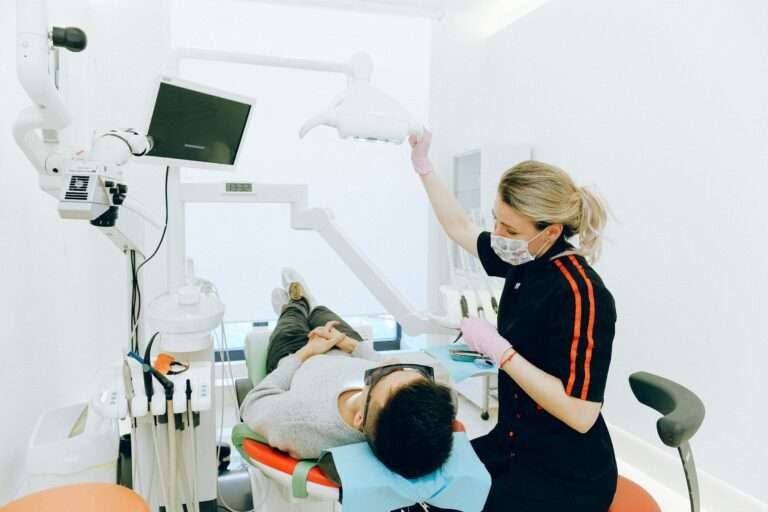Top 5 Benefits of Using EMR Systems in Healthcare
Systems for electronic medical records, or EMRs, are now essential to the healthcare sector. They have brought about a great deal of benefits for patients and healthcare practitioners alike, revolutionizing the way patient data is accessible, handled, and kept. Now let’s explore the top 5 benefits of EMR systems in the medical field.
What are EMR Systems?
EMR systems are electronic renditions of the conventional paper charts typically found in medical offices. They house every patient’s medical history and course of therapy in one location. Electronic medical records, or EMRs, are available instantly and can be shared among various healthcare professionals to enhance the standard of care.

Why EMR Systems are Essential in Healthcare Today
EMR systems have become important in the fast-paced healthcare environment of today, where rapid and accurate patient data is necessary for decision-making. They give healthcare providers the tools they need to make data-driven choices, optimize workflows, and enhance patient care.
Benefit #1: Improved Patient Care
The most important goal in healthcare is to improve patient care, and EMR systems are essential to achieving this goal.
How EMRs Enable More Accurate Diagnoses
Healthcare professionals have a complete picture of the patient’s health when all of the patient’s medical records are in one location. This results in more precise diagnosis and better decision-making.
Reduction of Medical Errors with EMRs
EMRs reduce human error by guaranteeing that medical professionals have access to current, correct data. Ensuring prompt follow-ups and preventing prescription conflicts are only two examples of how EMRs may dramatically lower the margin of error.
Benefit #2: Better Data Accuracy
One of the most important components of providing high-quality healthcare is data accuracy, and EMRs are essential to keeping clean, error-free records.

Eliminating Handwritten Errors
The days of interpreting handwritten notes are long gone. EMR systems ensure that the data submitted is clear and understandable to all parties involved by eliminating the hazards associated with illegible handwriting.
Real-Time Access to Patient Information
Healthcare professionals can make decisions more quickly thanks to EMRs’ instantaneous patient data availability. Additionally, real-time access guarantees that pertinent information—such as allergies or prior medical interventions—is always accessible when needed.
Benefit #3: Enhanced Communication Between Healthcare Providers
The ability of EMR systems to provide smooth communication between healthcare practitioners is one of their biggest benefits.
Streamlining Interdisciplinary Collaboration
EMR systems make sure that all medical staff members—primary care physician, specialist, nurse, etc.—are in sync with one another. This facilitates interdisciplinary cooperation and lowers the possibility of misunderstandings or repeated testing.
Improving Continuity of Care
EMRs allow patient records to be transferred between various institutions and clinicians, guaranteeing continuity of treatment. This is particularly important when patients are moving between multiple healthcare facilities or care levels.
Benefit #4: Increased Efficiency and Productivity
EMR systems deliver significant efficiency advantages that enable healthcare providers to concentrate more on patient care and less on paperwork.
Faster Documentation and Record Keeping
With EMRs, documentation is a breeze. Healthcare professionals can input and retrieve information rapidly, saving them time and allowing them to concentrate more on patient engagement rather than filling out paper charts.
EMRs Save Time for Healthcare Providers
Time is saved when productivity rises. Healthcare professionals can see more patients without compromising the quality of care they deliver because to EMRs, which help them execute jobs more swiftly and precisely.
Benefit #5: Data Security and Compliance
Electronic Medical Records (EMR) systems are designed with strong security features to safeguard patient data in an increasingly connected environment.

How EMRs Protect Patient Privacy
Sensitive patient data is only accessible by authorized individuals thanks to the encryption and access control mechanisms included in EMR systems. Upholding patient confidence and adhering to healthcare privacy regulations depend on this.
Meeting Regulatory Requirements
EMR systems are made to abide by laws such as HIPAA (Health Insurance Portability and Accountability Act), which guarantees that medical practitioners fulfill their legal obligations regarding patient privacy and data security.
The Role of EMR in Telemedicine
EMR systems play a critical role in allowing telemedicine, which increases patient access to healthcare regardless of geographic location.
Facilitating Remote Patient Monitoring
EMRs allow medical professionals to follow patients’ health development and monitor them from a distance, eliminating the need for in-person visits. Patients who require routine check-ups due to chronic diseases will find this very helpful.
Seamless Integration of Virtual Care
The integration of EMR systems improves the efficacy of telemedicine consultations by enabling medical professionals to view patient records instantly and give knowledgeable advice during virtual consultations.
The Impact of EMR on Patient Satisfaction
EMRs are not only advantageous to medical professionals; they also greatly enhance the patient experience.
Faster Results and Referrals
Patients no longer have to wait many days or weeks to hear back from specialists or receive test results. EMR systems facilitate expedited communication among lab personnel, specialists, and primary care physicians, so guaranteeing prompt outcomes.
Patient Portals and Self-Management Tools
Patients now have greater influence thanks to the patient portals that are included with many EMR systems. These portals let patients view their records, request prescription refills, and even schedule appointments online.
How EMRs Help in Decision-Making for Healthcare Providers
EMR systems give insightful information that supports data-driven decision-making by healthcare providers.
Data-Driven Clinical Decisions
By combining patient data, EMR systems facilitate doctors’ ability to identify patterns and make more precise clinical judgments.
Predictive Analytics for Preventive Care
Healthcare professionals can use predictive analytics to identify patients who are at-risk and suggest preventive actions before problems worsen with the aid of EMR data.
Challenges and Limitations of EMR Systems
Although EMR systems have numerous advantages, healthcare professionals should be mindful of the drawbacks as well.
Initial Setup Costs and Learning Curve
Healthcare professionals and staff frequently have a learning curve while adjusting to new EMR system implementations, which can be expensive.
Overcoming System Interoperability Issues
The inability of some EMR systems to effectively connect with one another makes it difficult for various healthcare professionals to exchange patient data. There is still room for development in this area.
EMRs and the Future of Healthcare
With the developments in artificial intelligence and machine learning, among other fields of technology, the future of electronic medical records is bright.
The Role of AI and Machine Learning in EMR Systems
EMR systems already incorporate AI and machine learning to support decision-making, predictive analytics, and even administrative task automation.
How EMRs Will Evolve Over Time
As technology develops, EMR systems will become faster, more user-friendly, and more accurate in forecasting patient outcomes, further disrupting the healthcare sector.
Conclusion
EMR systems are revolutionizing healthcare through increased efficiency, better communication, and better patient care. Although putting these systems into place can be difficult, the advantages exceed the disadvantages by a wide margin. A more linked, data-driven healthcare system that helps patients and doctors alike is being made possible by EMRs.
FAQs
- What is the difference between EMR and EHR?
While an EHR (Electronic Health Record) is a more comprehensive set of data that can be shared across different healthcare settings, an EMR (Electronic Medical Record) is a digital version of a patient’s chart within a single practice. - Are EMRs safe and secure for storing patient data?
Indeed, EMRs adhere to stringent healthcare privacy regulations like HIPAA by protecting patient data through encryption and access controls. - How does an EMR improve patient care?
EMRs enable instant access to patient data, guaranteeing that medical professionals have all the knowledge necessary to make wise decisions. This lowers the risk of medical errors and raises the standard of care. - Can small clinics benefit from EMR systems?
Of course! Like larger institutions, small clinics can use EMR systems to improve patient care, decrease paperwork, and streamline workflows. - What is the future of EMR in healthcare?
Predictive analytics, AI, and machine learning will all be more integrated with EMR in the future, which will improve the efficacy and efficiency of healthcare delivery.







